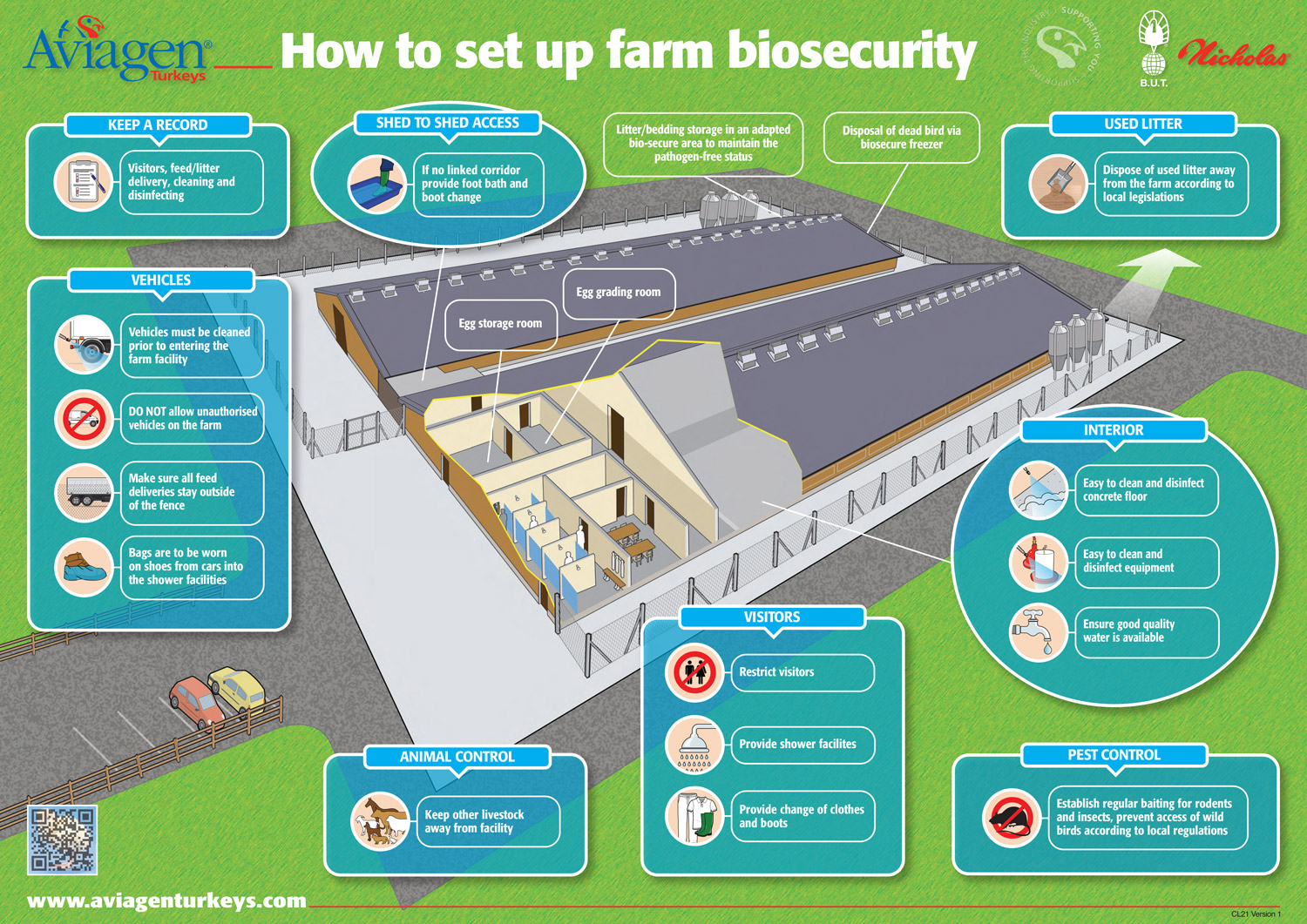The importance of high-level biosecurity to control the threat of Avian Influenza
The main symptoms of Avian Influenza in turkeys are depression, loss of appetite, cessation of egg-laying, nervous signs, coughing, sneezing and diarrhoea. Sudden death can occur without any previous signs. The mortality rate may reach up to 100% depending on the virus type involved as well as environmental factors.

Click here to download a PDF >
The risk of virus entry in to poultry farms depends on the level of biosecurity. Turkeys are highly sensitive to infection; therefore, biosecurity measures are vital.
Effective biosecurity measures can be used to reduce the risk of introduction or spread of infectious organisms on a site. They should be a key priority for turkey farmers.
Adoption of good biosecurity starts with farm set-up and continues with implementation of robust management practices. Particular care needs to be taken with regard to the potential for wild birds (or their droppings or feathers) coming into direct or indirect contact with any poultry.
The biosecurity of the overall poultry farming system – including the hatcheries, feed mills, transport vehicles, processing plants and general farm support services – is also vital in preventing the spread of this devastating infection.
Implementing protocols ensures that the risk of infection is considerably reduced. The poster below provides a highly visual aid which can be displayed in a farm environment; it will act as a constant reminder to staff as to the role they play reducing health risks to the stock under their care.
